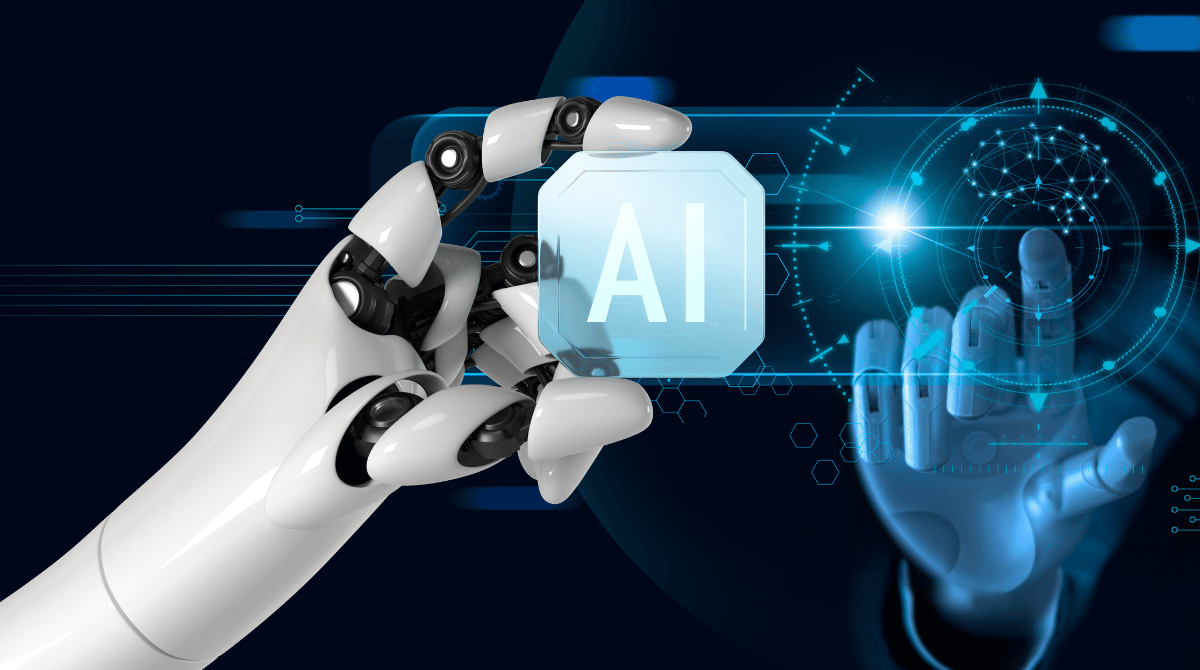Pursuing a Bachelor’s in Artificial Intelligence in France presents an exciting opportunity for students eager to explore one of the most dynamic fields in technology. Aspiring professionals will find that France offers a range of programmes that combine theoretical knowledge with practical skills in AI development. The diverse curriculum and access to cutting-edge research facilities make French universities a top choice for those aiming to excel in this rapidly evolving sector.
In France, students benefit from a strong emphasis on interdisciplinary learning, blending insights from computer science, mathematics, and cognitive psychology. The country’s robust tech ecosystem, including numerous startups and established firms, enhances learning experiences through internships and collaborative projects. Moreover, the global recognition of French degrees ensures that graduates are well-positioned in the international job market.
With a focus on innovation and research, studying for a degree in Artificial Intelligence in France equips learners with vital skills for the future. The experience not only supports academic growth but also fuels passion for addressing real-world challenges through AI solutions. Students can expect to emerge as qualified professionals ready to contribute significantly to the evolving landscape of artificial intelligence.
Eligibility and Admission Criteria
The eligibility and admission criteria for a Bachelor’s degree in Artificial Intelligence in Lyon, France focus on academic qualifications, language proficiency, and the necessary application documents. Meeting these criteria is essential for prospective students.
Academic Qualifications
To apply for a Bachelor in Artificial Intelligence in France, candidates typically require a secondary school diploma or its equivalent. A strong background in mathematics and science is often necessary, as these subjects are crucial for AI studies.
Some universities may prefer applicants who have completed A Levels or the International Baccalaureate, focussing on subjects like Physics, Computer Science, and Mathematics. Additionally, certain programmes may have specific grade requirements, generally asking for a minimum of 12-14 points in the Baccalauréat or equivalent qualifications.
Language Proficiency
Language proficiency is vital for success in a Bachelor’s programme conducted in French or English. For French-taught courses, students should demonstrate a level of proficiency generally equivalent to B2 on the Common European Framework of Reference for Languages (CEFR).
For programmes in English, students might need to provide results from standardised tests such as IELTS or TOEFL. Minimum score requirements often range from an overall band score of 6.5-7.0 in IELTS or around 80-90 in TOEFL, depending on the university’s standards.
Application Documents
Candidates must submit a set of application documents along with their applications. Commonly required documents include:
- A completed application form
- Copies of academic transcripts and diplomas
- Proof of language proficiency
- A CV detailing relevant experience
- A motivation letter outlining the applicant’s interest in AI
Some institutions may also request letters of recommendation. It is essential for applicants to adhere to each university’s specific document requirements and submission deadlines to ensure a smooth application process.
Bachelors in Artificial Intelligence Course Overview
The Bachelors in Artificial Intelligence course in France provides a comprehensive framework combining theoretical knowledge and practical skills. It prepares students for various career paths in AI through a structured curriculum.
Curriculum Structure
The curriculum is designed to span three years, typically divided into six semesters. Students engage in a blend of lectures, hands-on projects, and internships.
Each semester focuses on specific themes, ensuring that foundational concepts are covered before advancing to complex applications. Assessment methods include written exams, project work, and presentations, which encourage both individual and collaborative learning.
Core Subjects
Core subjects form the backbone of the programme, ensuring students gain essential skills. Key areas of focus include:
Mathematics for AI: This subject covers linear algebra, calculus, and statistics, fundamental for understanding AI algorithms.
Programming Fundamentals: Students learn programming languages such as Python and Java, essential for developing AI solutions.
Machine Learning: This subject dives into supervised and unsupervised learning methods, providing insights into data manipulation and predictive modelling.
Data Structures and Algorithms: A critical area that focuses on efficient data manipulation techniques necessary for implementing AI applications.
These subjects equip students with the necessary theoretical grounding and practical skills.
Elective Modules
The course offers a variety of elective modules that allow students to tailor their education according to their interests. Some popular electives include:
Natural Language Processing (NLP): This module explores how machines understand human language, covering topics like sentiment analysis and language generation.
Computer Vision: Students learn about image processing techniques and how to develop applications that interpret visual data.
Robotics: This elective focuses on automating tasks using AI, covering both hardware and software aspects.
Ethics in AI: An increasingly important area, this module addresses the ethical implications of AI technologies and their societal impact.
These electives enable students to specialise in areas of particular interest, enhancing their career readiness.
Also Read : Bachelors in Data Science Course in France
Practical Experience
Acquiring practical experience is essential for students pursuing a Bachelor’s in Artificial Intelligence in France. This experience elevates theoretical knowledge and prepares students for future careers in the field. The course structure incorporates internships, capstone projects, and lab work to enhance learning outcomes.
Internships
Internships provide students with exposure to real-world applications of artificial intelligence. Most programmes facilitate placements in various tech companies, research institutions, or startups.
Students may assist in tasks such as developing AI models, data analysis, or implementing machine learning algorithms.
An internship often lasts several months, allowing students to gain invaluable insights into industry practices. They may also network with professionals, which can lead to job opportunities post-graduation.
Internship experiences are frequently documented in students’ portfolios, showcasing their skills to potential employers.
Capstone Projects
Capstone projects serve as a culmination of the students’ learning experience, requiring them to apply their knowledge to solve complex problems.
Typically undertaken in the final year, these projects might involve collaborations with industry partners, ensuring relevance and applicability.
Students work in teams to design, develop, and present a project that addresses a specific AI challenge.
These projects not only demonstrate technical competencies but also foster skills in project management and teamwork.
Successful capstone projects can significantly enhance a student’s résumé and highlight their problem-solving abilities.
Lab Work
Lab work is a critical component of the curriculum, providing hands-on experience with AI tools and technologies.
Students engage in practical exercises using programming languages like Python, R, or Java, along with frameworks such as TensorFlow and PyTorch.
In a lab setting, they learn about data preprocessing, model training, and performance evaluation.
This experience solidifies understanding through experimentation and iterative learning.
Regular lab sessions encourage students to innovate and develop their own AI solutions in a controlled environment.
Career Opportunities
Pursuing a Bachelor’s in Artificial Intelligence in France opens numerous pathways across various industries. Graduates can expect a diverse range of job roles with significant career growth potential.
Industry Sectors
Artificial Intelligence influences multiple industry sectors. Key sectors include:
- Technology: Companies like Google and IBM invest heavily in AI for innovation.
- Finance: AI streamlines processes and enhances risk assessment in banks and investment firms.
- Healthcare: AI assists in diagnostics, treatment plans, and patient management systems.
- Automotive: Leading manufacturers integrate AI for autonomous driving and enhanced safety features.
Each sector offers unique challenges and opportunities, making AI expertise highly sought after across the job market.
Job Roles
Graduates can fill various positions, such as:
- Data Scientist: Analyses complex data sets to derive actionable insights.
Machine Learning - Engineer: Designs algorithms and models focused on predictive analysis.
- AI Research Scientist: Conducts research to advance technologies in AI.
- Computer Vision Engineer: Works on image and video recognition technologies.
These roles require strong technical skills and adaptability, providing engaging work environments where graduates can thrive.
Career Growth
Career growth in AI is rapid. As technology advances, demand for skilled professionals continues to rise.
- Entry-Level Positions: Many graduates start as AI analysts or junior data scientists.
- Mid-Level Options: With experience, individuals can progress to senior roles or lead teams.
- Leadership Potential: Exceptional talent may advance to positions such as Chief Data Officer or AI Product Manager.
Continuous learning and skill development are essential, enabling professionals to stay relevant in this fast-paced field.
Top Universities Lyon
Several universities in France offer distinguished programmes in Artificial Intelligence. Key factors such as location, faculty reputation, and the strength of alumni networks play a crucial role in the decision-making process for prospective students.Location Factors
The location of a university significantly impacts the overall student experience. Many top universities in France are situated in major cities like Paris, Lyon, and Toulouse. These cities are not only educational hubs but also technology centres, providing access to a variety of tech companies and start-ups.
Proximity to industry leaders facilitates internships and job placements for students, enhancing career prospects. For instance, Paris is home to numerous tech firms and research institutions, making it an attractive option for those pursuing a degree in Artificial Intelligence. Students benefit from engaging in a vibrant cultural and professional environment.
Faculty Reputation
The reputation of faculty members is a pivotal aspect of any academic programme. Leading universities employ professors who are well-respected in the field of Artificial Intelligence. Faculty often have backgrounds in significant research projects and substantial industry experience.
Institutions such as École Polytechnique and Université Paris-Saclay feature professors who have published influential research and contribute to advancements in AI technology. This level of expertise allows students to learn from the best, fostering a rich academic environment that encourages innovative thinking and practical application of knowledge.
Alumni Network
A strong alumni network is invaluable for current students and recent graduates. Universities with established connections in the technology sector can offer support through mentorship and job opportunities.
Institutions like CentraleSupélec and Université Grenoble Alpes boast extensive alumni networks that engage actively with students and provide insights into industry trends. Networking with alumni not only aids in job placements but also enhances collaborations in research and development within Artificial Intelligence fields.




